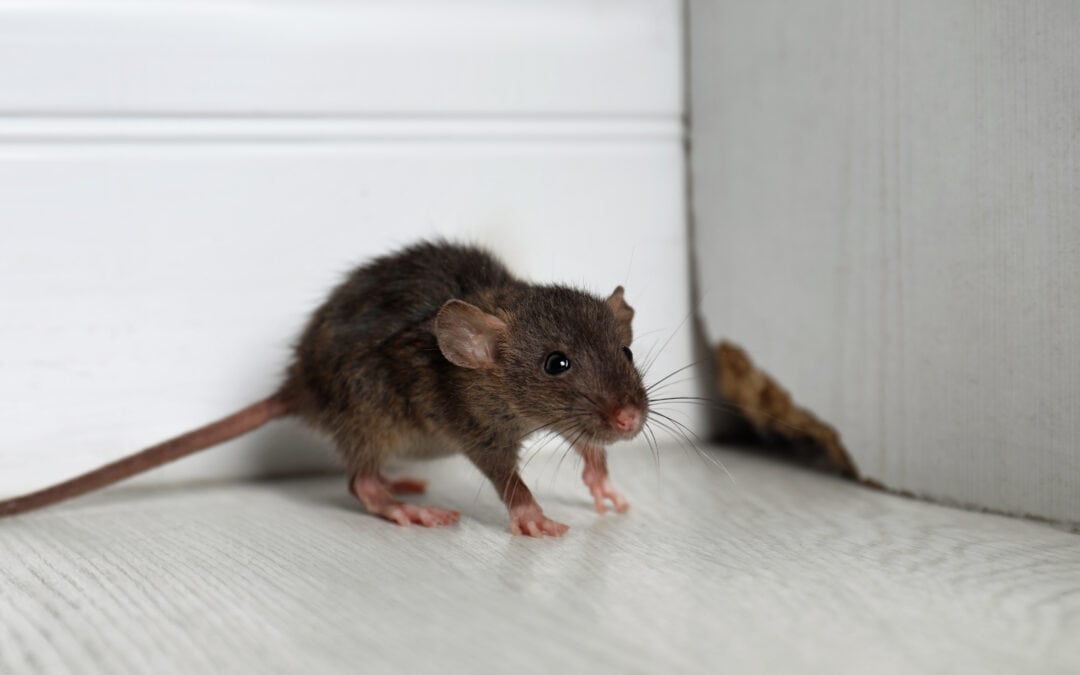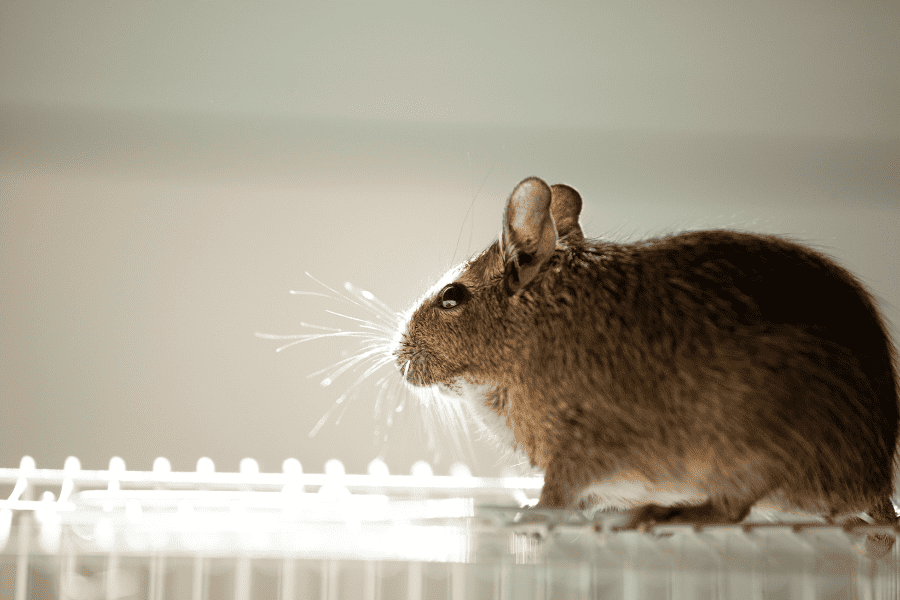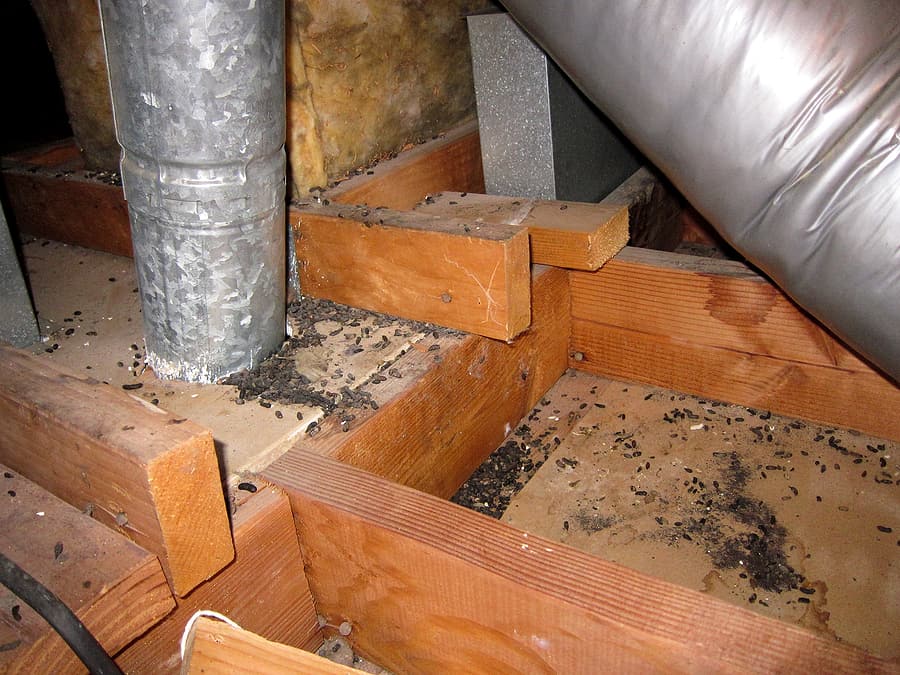
Oct 22, 2024 | Florida Pest Control
If you’ve noticed the unwelcome signs of rodents in your Florida home, like droppings, gnaw marks, or that unsettling scratching sound in the walls, you’re probably wondering, why are these creatures invading my space? Rodents like rats and mice are notorious for seeking shelter indoors, especially in Florida’s warm, humid climate. In this blog, we dive into what attracts rodents to your home and what you can do to keep them out!
What Attracts Rodents To Our Homes
They’re Looking for Food
Rodents are always on the hunt for a quick meal. If you have easily accessible food sources, such as open trash bins, pet food, and even crumbs on the floor, your home becomes an all-you-can-eat buffet! Even pantry items stored in cardboard boxes can be tempting to these critters.
Your Home Offers Shelter
Florida’s weather can fluctuate, with heavy rains or hot summers driving rodents indoors. These creatures are experts at finding entry points, no matter how small. Cracks in walls, open windows, or gaps under doors can be all they need to get inside.
They’re Searching for Water
Rodents need water to survive, and your home offers plenty of options. Leaky faucets, standing water in sinks, or even condensation around pipes can draw them to your property. Once they find water, they’re likely to stick around!
Clutter Provides Perfect Hiding Spots
Rodents love cluttered spaces because they offer excellent hiding spots. If your attic, garage, or basement is filled with boxes or old furniture, rodents will feel right at home. These critters can also hide in areas like behind appliances or inside walls.
How to Keep Rodents Out
It may seem like an impossible task but it is possible to deter rodents from your property with a few, simple preventative measures! Consider these DIY rodent prevention tips:
- Rodents can squeeze through even the tiniest openings, so inspect your home for cracks, gaps, or holes. Seal them with caulk or other sealants, paying special attention to areas around doors, windows, and pipes.
- Keep your food stored in airtight containers, especially items like cereal, pet food, and snacks. Be sure to clean up crumbs and spills right away and take out the trash regularly.
- Don’t let water sources attract rodents! Fix any leaky faucets or pipes, and make sure there’s no standing water in sinks or other areas.
- Reduce clutter in your home, especially in storage areas like attics and garages. The fewer hiding spots you provide, the less attractive your home will be to rodents.
- Trim back any overgrown bushes, trees, or vines near your home, as these can act as pathways for rodents to reach your roof or walls. Clean up any debris or piles of wood that could serve as nesting spots.
If you’ve taken steps to prevent rodents and they’re still getting in, it’s probably time to call a local wildlife company near you. They can inspect your home, figure out what attracts rodents to your home, identify how they are getting in, and apply treatments to stop them in their tracks!

Oct 31, 2023 | Florida Pest Control
Punta Gorda Rodents
Rodents are a common pest Floridians will deal with. Rodents, like rats and mice, invade homes in search of water, shelter, and food to survive. Once rodents have infested your Punta Gorda home, it can be difficult to remove them as they will often reproduce quickly! It’s important for Punta Gorda homeowners to understand what attracts rodents to their homes and how to prevent them from infesting.
What Attracts Rodents
- Food: The most common reasons rodents will invade your property is if they find food. Both rats and mice will eat anything you leave laying around inside and outside of your home, including pet food.
- Warmth: Rodents like a warm, comfortable place to inhabit, which is why they often look to our homes to find it. Common places these creatures will inhabit include attics, sheds, basements, and other structures that are dry and warm enough to make a nest.
- Water: Like any pest, rodents need water to survive. Mice and rats are in constant search for water, which our homes have plenty of supply of. These rodents will take advantage of leaky pipes, bowls of water for our pets, leaking sprinklers, fountains, and birdbaths.
How to Prevent Rodents
Dealing with rodents in your home is less than ideal. Luckily, there are do-it-yourself preventative measures you can place throughout your home to keep these pests from invading. Consider the following rodent control tips:
- Empty your garbage regularly, utilizing a tight lid or lock
- Utilize screens on vents, chimneys, windows, and doors
- Keep your home free of clutter from paper, fabric, and other materials used for nesting
- Seal any entry points leading inside your home with metal mesh
- Rinse food and drink containers before throwing them away
- Avoid leaving pet food and water out overnight
- After each meal, wipe down your countertops and clean up any spills or crumbs
- Repair any leaky pipes found in your home
- Keep firewood elevated and stored at least 20 feet away from your home.
In summary, what attracts rodents to your Punta Gorda home is food, water, and shelter. If you suspect a rodent infestation, contact your local pest control company for help. These professionals will thoroughly inspect your home and safely remove any rodents that are found on your property.

Oct 20, 2021 | Pest Control
Rodents can wreak havoc on your home, chewing through wires and insulation and contaminating surfaces with their urine and feces. Rodents are also known for carrying and transmitting serious diseases to humans. You may not see a live rodent in your home until an infestation is already established. It is important to know the signs of a rodent infestation so you can identify the problem before it gets out of control. Here are 9 warning signs of a rodent infestation to look for in your home.
- Rodent droppings around food packages, in drawers and cupboards, and under sinks.
- Nesting material such as shredded paper, fabric, string, and dried plant matter.
- Signs of chewing on food packaging.
- Holes that have been chewed through floors and walls that these critters can use as an entry point.
- Stale smells coming from hidden areas of your home such as wall voids, attics, crawlspaces, etc.
- Rub marks, which are oily marks left behind where rodents travel along walls.
- A strong, musky urine odor.
- Scampering, scratching, or gnawing sounds, especially at night.
- Unusual pet behavior such as becoming extremely alert or anxious, excessive barking, or pawing at surfaces under appliances or furniture.
Prevention is critical to keeping rodents and other pests from taking over your home. Keep them out of your home with these rodent prevention tips:
- Seal any holes inside or outside your home with steel wool, lath screen, lath metal, cement, hardware cloth, or metal sheeting. Some common areas to check for holes include in the roof among rafters, gables, and eaves; around windows and doors; around foundations; in attic and crawlspace vents; under doors; around holes for electrical, plumbing, cable, and gas lines; inside and under cabinets; inside closets near floor corners; around fireplaces; around pipes under sinks and washers; around hot water heater and furnace pipes; around floor and dryer vents; in basement and laundry room floor drains; and between floor and wall junctures.
- Remove potential nesting sites such as leaf piles and deep mulch.
- Keep garbage in containers with tight-fitting lids.
- Turn compost piles to cover any newly added food.
- Bring pet food and water bowls in overnight and empty birdfeeders daily. Try to avoid feeding outdoor birds, if possible, while you have an active infestation.
- Fix gaps in trailer skirting and use flashing around the base of your home.
- Store food in thick plastic or metal containers with tight-fitting lids.
- Keep outdoor cooking areas and grills clean.
- Elevate woodpiles, hay, and garbage cans at least 1 foot off the ground.
- Get rid of any old tires, vehicles, etc from your property.
- Keep your grass mowed short and shrubbery well trimmed, especially if it is within 100 feet of your home.
If you suspect you have a problem with rodents or any other pest, your local pest control company can perform a thorough home inspection which will help determine the type of rodent you are dealing with, their patterns of activity, what’s attracting them to your home, and which treatment method is best for elimination and ongoing prevention.
You May Also Be Interested In:
What Is The Most Effective Termite Treatment?
Preventing Rats This Fall
5 Pests That Can Destroy Your Lawn
Avoiding A Winter Wildlife Invasion
Is Mosquito Control Needed in Winter?


